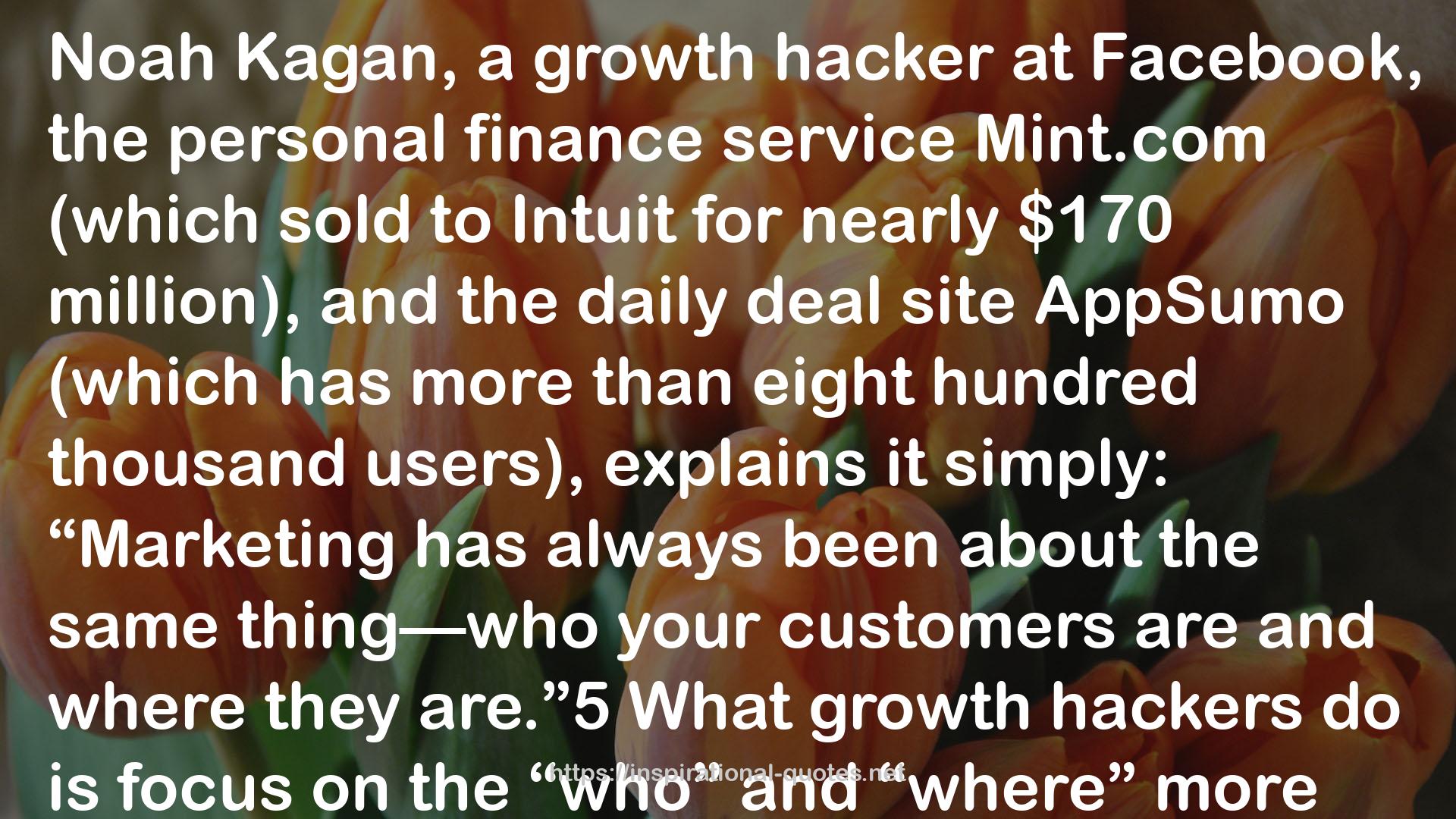" Noah Kagan, a growth hacker at Facebook, the personal finance service Mint.com (which sold to Intuit for nearly $170 million), and the daily deal site AppSumo (which has more than eight hundred thousand users), explains it simply: “Marketing has always been about the same thing—who your customers are and where they are.”5 What growth hackers do is focus on the “who” and “where” more scientifically, in a more measurable way. Whereas marketing was once brand-based, with growth hacking it becomes metric and ROI driven. Suddenly, finding customers and getting attention for your product are no longer guessing games. But this is more than just marketing with better metrics; this is not just “direct marketing” with a new name. Growth hackers trace their roots back to programmers—and that’s how they see themselves. They are data scientists meets design fiends meets marketers. They welcome this information, process it and utilize it differently, and see it as desperately needed clarity in a world that has been dominated by gut instincts and artistic preference for too long. But they also add a strong acumen for strategy, for thinking big picture, and for leveraging platforms, unappreciated assets, and new ideas. "
― Ryan Holiday , Growth Hacker Marketing: A Primer on the Future of PR, Marketing, and Advertising
